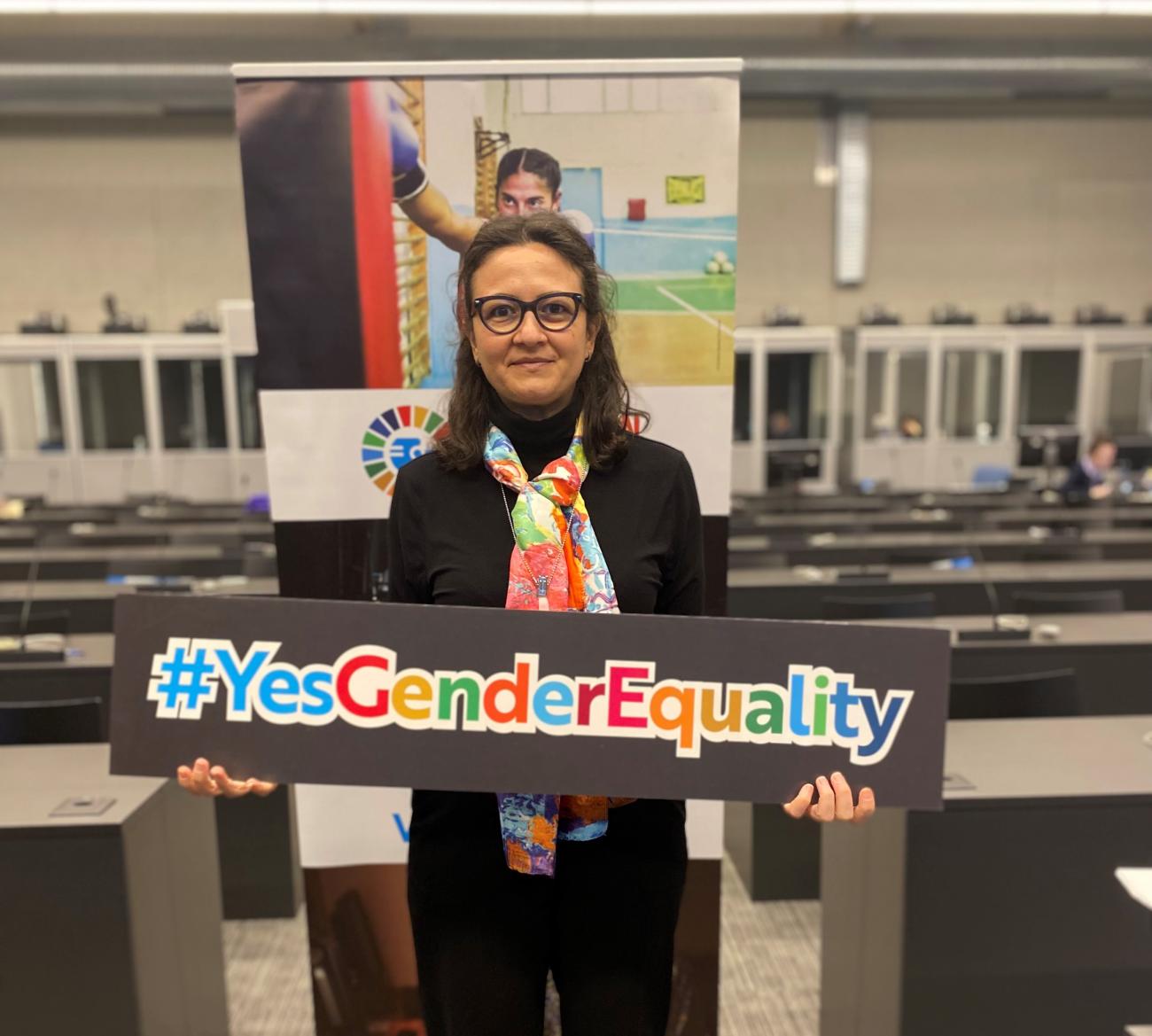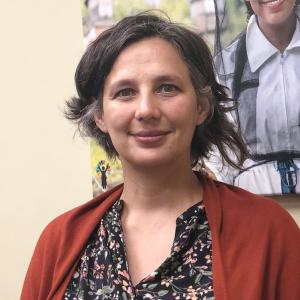Huriye Göncüoğlu Bodur is an academic at the Ege University Faculty of Fisheries and a social entrepreneur based in Izmir, a western province of Türkiye. She is an activist and the founder of the Women in Fisheries Society, a civil society organization defending the rights of fisherwomen and working to preserve marine life. She attended the Regional Forum on Sustainable Development in April 2022 held in Geneva with the support of UN Women Türkiye. The Forum helped her grasp a deeper understanding of the Sustainable Development Goals (SDGs) and sparked her enthusiasm to advocate for them.
“I grew up in a house with a sea view. As a child, I loved watching and being in the sea. I always wanted to dive deeper, in like the story of The Little Black Fish by Samed Behrengi, which my mother used to read to me. We used to spend part of our summer holidays in my grandmother’s vineyard where I learned solidarity, collaboration and collective labour.
With these two women in my life, I started to dream of a better world. This dream transformed into a vision of an equitable fisheries sector where men and women have the same rights.
During my education, I realized that women in the fisheries sector cannot participate in decision-making and experience challenges in accessing information. In 2019, I established the Women in Fisheries Society, a civil society organization aiming to strengthen artisanal fisheries and fisherwomen. The society challenges gender roles and stereotypes in the fisheries sector in Türkiye. It also works for an ecosystem-based ‘blue economy’ for preserving and sustaining marine resources.
At the Regional Forum on Sustainable Development (RFSD) 2022, it was inspiring to observe representatives of governments, civil society, the private sector, academics, youth, and women together, with the aim of realizing the 2030 Agenda for Sustainable Development. I had the opportunity to join expert meetings on SDG5 and SDG14 and to discuss key issues with scientists and civil society representatives. Their efforts on ‘marine literacy’ are already shaping my future studies and advocacy initiatives.
SDG 14 emphasizes how essential our ocean, sea, and marine resources are to human well-being as well as social and economic development. Unfortunately, the public does not have enough knowledge about the importance of marine resources and their impacts on our lives, and how our daily practices affect the marine ecosystem. RFSD once again proved that there is a close relationship between marine life and the climate crisis.
On the other hand, fisherwomen have the wisdom of preserving resources and protecting marine life. They are the natural protectors of the sea. There is an immense relationship between women and nature. Women take environmental problems seriously, and they foresee natural disasters.
We need women’s experiences, voices and perspectives for an ecosystem-based and sustainable marine life. A fair and prosperous fishing society will be possible only if we ensure the participation of the most vulnerable groups such as small-scale family fisheries in the ‘blue economy’, and implement policies to empower women in this sector.
Huriye Göncüoğlu Bodur attended the Regional Forum on Sustainable Development convened by the United Nations Economic Commission for Europe (UNECE) in Geneva on 6–7 April 2022. Her participation in the forum was supported by UN Women Türkiye through the Strong Civic Space for Gender Equality project funded by the European Union. Bodur’s work contributes to Sustainable Development Goal (SDG) 14 Life Below Water, which aims to conserve and sustainably use the oceans, seas, and marine resources for sustainable development. Her work also relates to SDG 5 on achieving gender equality and empowerment of all women and girls.




